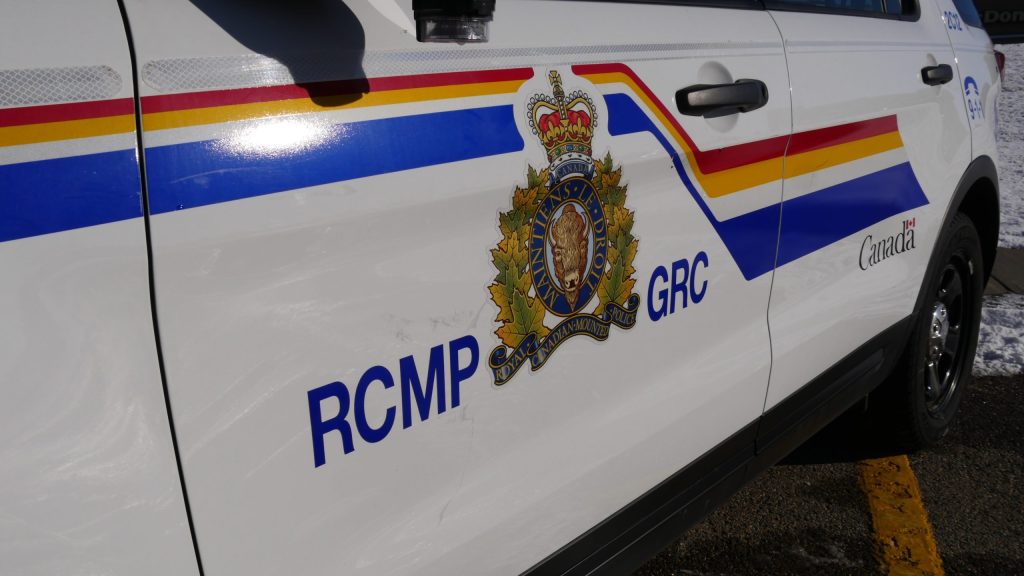First he helped kill bin Laden; now he’s set his sights on Canadian pipeline
Posted Jun 4, 2014 11:10 am.
This article is more than 5 years old.
ARLINGTON, Va. – A former U.S. special-forces soldier who helped oversee the project to kill Osama bin Laden has now been enlisted in the project to kill a Canadian oil pipeline.
Dave Cooper was a senior member of the Navy SEALs squad, known informally as SEAL Team Six, and helped train and supervise the soldiers who killed bin Laden in 2011.
Now retired, Cooper was hired by a group opposed to the Keystone XL project, headed by anti-pipeline billionaire Tom Steyer, to conduct a threat assessment of the controversial pipeline plan. He released his findings Wednesday.
In conducting his research, Cooper said, he approached the existing leg of the Keystone pipeline at various spots throughout the U.S. Midwest and snapped pictures of different pump stations without being accosted.
A handful of terrorists could trigger a catastrophic explosion with just four pounds of readily available material and cause a spill of up to 7.24 million gallons of toxic diluted bitumen, known as dilbit, he concluded.
At a news conference Wednesday, Cooper was asked: Wouldn’t that be true of virtually every piece of energy infrastructure — not just the one opposed by his patron?
There’s one big difference with Keystone, he replied: notoriety. Terrorists crave easy targets with a big-name impact and, because Keystone XL is so famous and so easy to hit, it fits the bill, he said.
“An enterprising terrorist is going to prey on that,” Cooper said. “That is the kind of impact that, if I were a terrorist, I would want to achieve.”
He also rebutted a question about the circularity of the logic — namely, aligning himself with a group that raises opposition to Keystone, then warning that because of all this opposition it could be ripe for a terrorist attack.
Parts of Cooper’s report were redacted. He said he’d spent a quarter-century in the military fighting terrorists and didn’t want to give them any guidance.
His most famous mission came in May 2011. He said he helped train the special forces who killed bin Laden in his Pakistani compound, and supervised the operation from a base in Afghanistan.
Three years later, he’s sharing details about how his old colleagues are doing.
Cooper said team members haven’t suffered the same rates of post-traumatic stress as other soldiers because they’re better at “flipping the (mental) switch” between peacetime and the trauma of the battlefield.
Many, however, have been diagnosed with traumatic brain injuries, the legacy of years of being exposed to crashes and explosions. “Those things, over time, impact our brains,” he said. “And we have guys who are struggling with that.”
But he said many are faring well in their post-military careers. Several already have successful business ventures, he said.
Cooper himself now works as a motivational speaker and consultant. He said the Keystone report is the first security-threat assessment he’s done as a civilian, but said it closely resembled some of the work he did in the special forces.
A former U.S. ambassador to Canada described the report as irresponsible, and unworthy of public discussion.
“I think the appropriate response is to ignore it,” said Gordon Giffin, whose law firm’s clients include the company behind Keystone, TransCanada Corp.
“There are … hundreds of pipelines in this country. Is this guy suggesting that we should never build a pipeline because some screwball might try and blow it up?”
The State Department, which is leading the review of Keystone XL, has been provided a copy of the report, although efforts to secure a meeting were rebuffed.
Cooper also discussed his brief stint as head of the Navy SEAL foundation. His position ended abruptly, after three months on the job. He was actually placed on leave just a month into the job.
But he said it had nothing to do with an interview he gave U.S. News and World Report, where he was cited discussing a few details of the Afghan raid.
Some of his former colleagues have spoken much more extensively.
A piece in Esquire magazine featured one of the soldiers who shot bin Laden, speaking anonymously. The CBS show “60 Minutes” featured a segment with another heavily disguised SEAL who wrote a book about the operation.
Those were the guys who took all the chances in that particular raid, Cooper said. By the time the bin Laden mission occurred, he’d already graduated to a supervisory role, he said.
“Yes, I did devise the training scenarios for the guys,” Cooper said. “But I assumed none of the risk. The guys on the helicopter took all the risk.”










